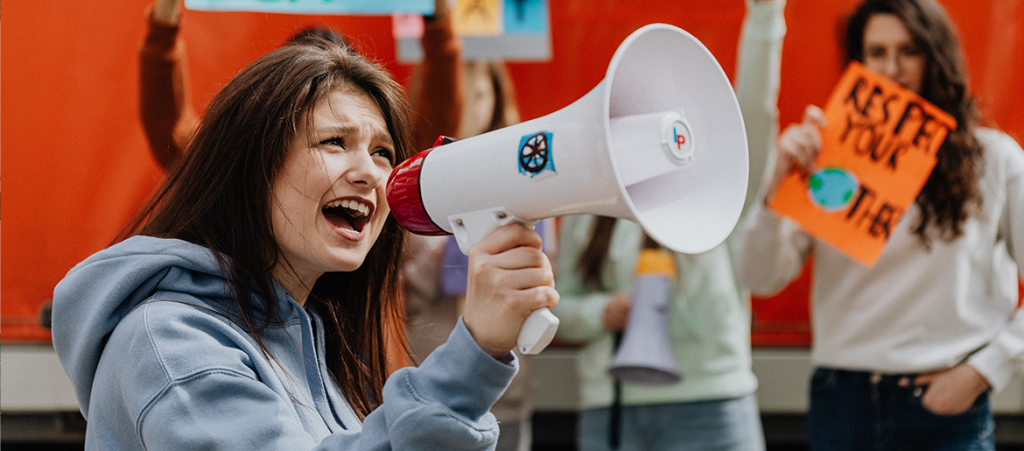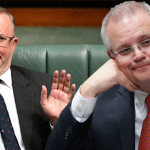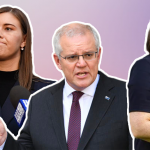
When you’re an informed, passionate young person in Australia it can feel confusing to be told on one hand that your voice has the power to drive change, while at the same time watching your elected representatives simply refuse to act. Do politicians even listen to the public? If change is the goal, what more can you do? There’s one occupation we can think of that might have the answer: a political lobbyist.
Zee Feed spoke to Tony Nicholls, a former journalist who is now a registered political lobbyist and director of Good Talent Media. Read on for Tony’s explanation of what lobbyists actually do, and how everyday people (that’s you!) can use their strategies.
In simple terms, how do you describe what political lobbying is?
A political lobbyist partners with organisations, and sometimes individuals, to work toward achieving legislative change. It’s an arm within a broader campaigning effort.
So for example, marriage equality – a very successful, public campaign. At the same time, not so publicly, you’ve got all manner of organisations working in the background, sitting directly in front of legislators going through the practicalities of getting laws like that changed.
What is step one of a lobbying campaign?
You want to frame up an argument, create the context for change. There’s a bit of strategy work and time that goes into that so it’s very clear, very black and white.
For example, if the legislation doesn’t change, is it this many job losses? Is it this many families who will suffer? Is it this many kids with cystic fibrosis that might die because that medication is not listed? It has to be compelling and preferably emotional.
It also needs to be absolutely specific, so you can narrow it down to the seats where relevant MPs are sitting, or for a Federal election that’s coming up, the marginal seats that are in trouble where the issue you’ve shaped up could be influential. You need to get that specific.
Young Australians ‘screaming’ for climate action but don’t trust leaders to make change, survey suggests https://t.co/YlCCeKH5NN
— Citizens’ Climate Lobby Australia (@CCL_Aus) September 6, 2021
From there, what practical strategies does a political lobbyist use to achieve the outcome they want?
Loosely defined, it’s ‘get in front of MPs and start asking for what you want’. You want to get the meetings and you want to build the relationships
So firstly you create your context for change, and then you put that forward to both sides of Parliament. Not just the Government, but both sides. You’re building those relationships and taking your time with that. But then you also start to educate broader audiences outside of Parliament as to why this matters. Because the Parliamentarians are tuned into that media as well.
It’s better to use both tactics concurrently. Request meetings, have coffees, set up site tours, build your political relationships, find high profile ambassadors to start telling part of the story, find friends in Parliament who can advocate for you. Do all that. And when that stops working, you can start making some noise in the press. Then usually that gets the coffees and the meetings started again, gets people back to the table.
It’s a long process of pulling both those levers. But if you’re showing authenticity, showing you’re organised and you’re not going away – putting in some time – it’s likely you will get a result.
How does a political lobbyist convince MPs and the people around them that an issue is important?
They all want to keep their jobs, ultimately. To do that they need to represent their electorates and be across the pressing issues of the day. So you need to educate them as to your issue and try to create a win for them if this legislation changes. This is part of framing up the argument – otherwise, why would they bother? Make it look attractive. And if that’s going well, then you turn the media campaign off for a while. If they’re back flipping on you and telling you fibs, you turn the media focus back up.
What’s your advice to young people who want to bring about political change? What moves can we learn from the pros?
You’re natural campaigners! I see it happening everywhere – enormous social media profiles, conviction, marketing – being executed beautifully. Young people are great on digital. You’re making a lot of noise all the time and everyone is smart enough to be targeting the decision makers, who are being referred to in all the collateral that’s been created. So I think that’s all really good stuff.
Maybe another step that can be considered is just getting a little bit more overt in reaching out to the pollies to start conversations. You’ve got it totally covered online, but what sort of personal relationships can you strike up? That’s available for you.
Our democracy is based on the Westminster system, which is set up for authority to connect with people. It’s still there for that purpose. So they do have a local office and if you’re in the electorate, it’s within the realm of possibility that you can get together. It’s a phone call. It’s a meeting. It’s inviting them to something in their area. You can take it to that step – that’s probably the only thing missing when it comes to young people doing their own lobbying.
How do you get a meeting with an MP or political figure?
So, you believe in something and you’ve set up a collective, you’re raising money and saving lives, you’re at the centre of something important. The whole country can see you, because you’re doing social media and media. Now you ask the MP, who gets the benefit to meet you and be part of it as well. It’s not adversarial, you are inviting them to be part of something great.
It could be: “We’ve got a few ideas that we believe in, but we could be off track. I’d like to know how we’re off track, let’s get together and brainstorm it together.” That’s 10 minutes of someone’s time. Or: “We’ve got some brand new data we’d like to take you through. It’s not published yet, I want you to see it first.” And away you go.
Now, it’s going to take a while. But if you show that you’re authentic, you’re organised and have a group behind you, you’re on the right side of history… Go build relationships.
How do you maintain that relationship beyond that first call or meeting?
Start with the end in mind. In this hypothetical, you want to see some legislation changed. You’ve framed up the argument that you’ve got a group – big or small, national or local – working towards something, and you’ve invited [an MP] to be involved. If you’ve got a sense for the future you’ll know when the next election is, and have a few milestones coming up. Maybe it’s a site tour of a location at the centre of your issue, or someone is winning an award for humanitarian work of some kind – invite them along.
The end in mind is: there’s an election coming up. So you’re making it clear in the relationship that this is the change you want to see, and you’re going to go on the journey with them.
Make sure you’re also talking to everyone in opposition, everyone else in power and start building as many of these relationships as possible. Get the feedback – these things are working, these things aren’t working, and changing your tactics. You know what, you can even enjoy it!






